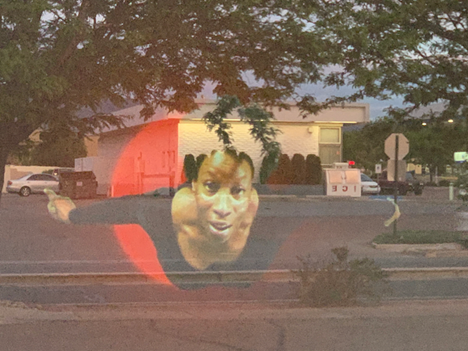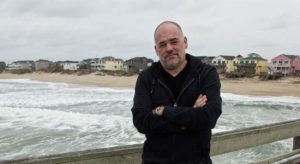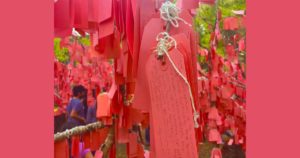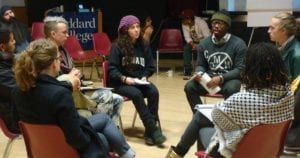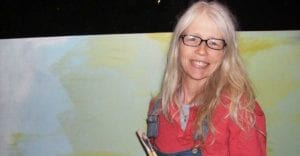 The beautiful writer, John Berger, who died a day into the New Year once said to the living: “hope is not a form of guarantee; it’s a form of energy, and very frequently that energy is strongest in circumstances that are very dark.” For all of you, I wish radical hope. And I wish for you radical optimism, which is the realization that hope is as real as despair, for the circumstances in which we find ourselves in America and in the world at large—a world, Wordsworth reminds us—that is too much with us—are very dark, indeed. It feels as though the great experiment, democracy, is winding down along with the general denial of poverty, climate change, institutional racism, the waters in Flint, Michigan and the Standing Rock Indian Reservation in North Dakota—denial accompanied by a soundtrack of dangerous and nihilistic rhetoric. We cannot ever normalize what is not normal. Every other status update I read on Facebook wraps its sentence around an epiphany of mobilization: Resist, Kevin is saying; Resist says Eve; Resist.
The beautiful writer, John Berger, who died a day into the New Year once said to the living: “hope is not a form of guarantee; it’s a form of energy, and very frequently that energy is strongest in circumstances that are very dark.” For all of you, I wish radical hope. And I wish for you radical optimism, which is the realization that hope is as real as despair, for the circumstances in which we find ourselves in America and in the world at large—a world, Wordsworth reminds us—that is too much with us—are very dark, indeed. It feels as though the great experiment, democracy, is winding down along with the general denial of poverty, climate change, institutional racism, the waters in Flint, Michigan and the Standing Rock Indian Reservation in North Dakota—denial accompanied by a soundtrack of dangerous and nihilistic rhetoric. We cannot ever normalize what is not normal. Every other status update I read on Facebook wraps its sentence around an epiphany of mobilization: Resist, Kevin is saying; Resist says Eve; Resist.
Uncharted waters is the phrase that heralds every political forecast which—more than anything—is nothing less than the extinction of liberal thought. And we seem to be living with a new oxymoron: FAKE NEWS. How do we lead a truthful life under imaginary circumstances? Through action and through writing. There is no fake news in poetry. But how can we even think of writing anything when everything feels so helpless? This is my first attempt on the page since Election Day. I was too angry and sad. What could I say that would be of any relevance, unless it was some kind of
journalistic rant against this political nightmare, which the writer Charles Blow was already doing pretty well on practically a daily basis for the New York Times.
I’m mostly an autobiographical writer—what use is hopelessly self-centered autobiography? Such audacity! And what if you are the kind of writer who doesn’t acknowledge the fire that is already here for Baldwin’s next time; or you don’t care about politics at all and feel the world only as an assumed realm of daily existence: always there, outside the front door and continuing until it falls into a valley or the sky or the sea. Or, what if you are writing stories or novels or plays and turning on the imagination to make things happen, to make people up—but the world in trouble isn’t something to document because it just keeps ending, but never ends. Old news. Except it never is because it barely gets written.
I’m not asking writers to gaze somewhere they have never been—or maybe I am—maybe I’m asking writers to know writing as literary activism that reminds people what it means to serve an imagination whose only intuition is to create and not destroy. The planet itself may be skywriting a narrative of self-destruction, but the artist’s mind—like the writer Michelle Cliff’s mind, who—if she could write her story in fire, would write it in fire—is forever coming up with a context in which thought can flourish and make more wonder.
The journalist, Anand Giridharadas said after the election: “Writers and artists now have an importance in America that in my lifetime maybe they haven’t had.” And what does that importance look like, exactly? Well, for one thing, it can manifest into taking actions that don’t necessarily translate into writing right away—like talking to the
Iranian cab driver or the Russian shopkeeper—to take in the unfamiliar by making it personal. To be invigoratingly curious.
I once wrote a book—a memoir—that took place on the racetrack: an environment that was so foreign and so evocative that the language I was learning in order to thrive there would be written down as the mystery of how I got there in the first place and how to sustain that dilemma—counter to my heart’s desire—for a whole book. I was able to write that memoir because it was about something I knew nothing about and I had fallen in love with horses because their sheer size made me feel for the first time in my life physically insignificant.
I realized in imagining the book “Track Conditions” that one of the great pleasures of writing is the making of a place you keep inhabiting until it becomes the place where you live. The stakes are high because, as the storyteller—which is a persona—you are living there incognito. And, of course, there is an urgency that hustles you to take on language. Imagine what it must have been like for the political prisoner to have to write poems on a matchbook because that’s all there was. Or on his skin. Poetry wasn’t something written down merely to pass the time, it was something that enabled the poet in prison to stop it.
Something I have been thinking about (and heightened in my mind before and since the election) is how breathtakingly anti-intellectual the country has become. No thought, best thought. What passes for curiosity or insight has been overtaken by language that is subjective, often-times inane or insane, rhetorical doublespeak. One of the longest playing highlights in both the Obama and the Kennedy administrations was their understanding of the essential beneficence of intelligence and art. Instead of going to smart people, creative people, people who can see the future—politics now goes to oil, money and war. It’s an old story that never stops being incalculably sad and frustrating. We keep burying the world we can live in with another one that only benefits a few desperate mostly white men who live in continual greed. “I love mankind—it’s people I can’t stand” said my mother’s sweatshirt she wore sometimes at the kitchen table.
Last month, to bring in the new year, I listened to music the way I used to listen to music—when it was an actual activity. When you sat in a room of music playing. I was listening Lyle Mayes’s first solo album—the gorgeous pianist who recorded a lot with Pat Methany. I remember that album from another day when I was somewhat obsessed with it. I don’t know why. It was mournful but also hopeful—jazz—which is the music I listen to most because I never know where it’s going. My obsession with Lyle Mayes’ made the music memorable—which is, for me, the joy of music—the fact that you can actually remember a purely ephemeral encounter.
Jack Gilbert tells us in his poem, “A Brief for the Defense”: that “we must admit there will be music despite everything.” And I believe that. For every day I have lived on earth, I have listened to music and remembered what the music sounded like after the unpredictable years of difficulty, or years when something in the world tried to take it away. I could probably live without happiness, but not without music. There will be music despite everything. Listen to it. Listen harder.

